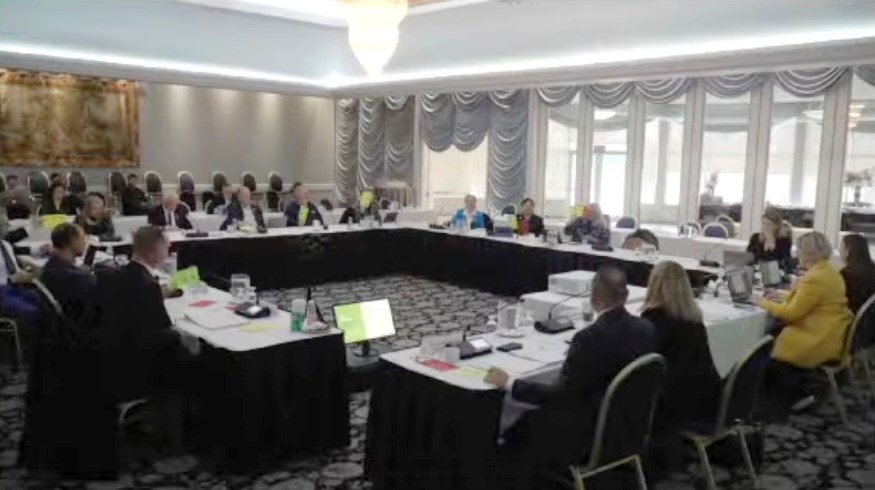The Edmonton Metropolitan Regional Board (EMRB) will dissolve March 31.
The board, being the elected leaders of the 13 member municipalities, voted unanimously Thursday to begin winding down operations.
Please see the following statement from the Edmonton Metropolitan Region Board (EMRB)
— Edmonton Metropolitan Region Board (@yegmetro) January 23, 2025
👉https://t.co/ktoxPHxUYz pic.twitter.com/MJ43thFJzc
The EMRB is a growth management board that for 17 years has “driven important collaboration on key regional initiatives such as land use, transportation infrastructure, housing, agriculture, municipal services, and environmental stewardship,” according to a statement issued minutes after the Jan. 23 meeting ended.
It has at least 10 employees including its leadership team, according to a webpage.
In November, Ric McIver, minister of Municipal Affairs, informed the EMRB and its Calgary counterpart the province was cutting the remaining $1 million in contributed to each of their annual budgets, and making participation in the boards voluntary.
This led to a parade of defections from both boards, including St. Albert city council’s unanimous vote to leave at their first meeting of the year Jan. 21.
“Following council votes by our member municipalities, the EMRB evaluated its options and after thoughtful consideration determined today’s motion was the best path forward,” Spruce Grove Mayor Jeff Acker said in a news release. “I’d like to thank our member municipalities for their support and partnership during this process.”
The board will inform McIver and request that he suspend the Regional Evaluation Framework (REF) and repeal the Edmonton Metropolitan Region Board Regulation effective April 1.
The EMRB has taken credit for saving the province at least $6.5 million since 2017 by working together, showing their work with an MNP report released in December 2023.
The regional growth plan eliminates the need for other planning documents, such as Intermunicipal Development Plans (IDPs) and Intermunicipal Collaboration Frameworks (ICFs), which are usually funded through the provincial government's Alberta Community Partnership grant.
“With the growth plan in place, there is only one document that must be updated every five years versus multiple IDPs and ICFs,” it reads.
Mayor Cathy Heron has warned without the EMRB framework, St. Albert will have to spend millions of dollars negotiating those ICFs and IDPs with its neighbours.
She called the surprise move by Municipal Affairs on a Friday afternoon in November the “worst decision” she’s ever seen that ministry make in her time in public life.
“This decision is going to cause residents’ taxes to grow up most likely, and it's going to cause a derailment of other things that are planning department is doing,” she said at the Tuesday council meeting, adding the EMRB was going to tackle a housing plan next.
“The biggest issue in Canada right now is housing, and now we don't have a regional strategy and no way to talk as a region about the homeless issues that affect the entire region because, of course, borders are invisible. So it is with regret that we are doing this today.”
The 13 municipalities plan to start talks on the future of regional collaboration “in the coming weeks,” according to the release.
“The EMRB has been an important part of our Region’s story since 2008, serving as the shared engine that has powered our development through thoughtful long-term land use planning,” Allan Gamble, mayor of Parkland County and EMRB chair, said in the release. “Through our work, we have brought urban and rural communities together and generated efficiencies, savings, and opportunities for all.
“While the vehicle may change, we are resolved to move forward together. Unprecedented population growth and an evolving global economy have made collaboration more important than ever.”
Minister McIver thanked the EMRB for its work in a statement issued Nov. 29.
“When the Metropolitan Region Boards were established, they were always intended to be self-funding and that is why funding has always been single year,” he said. “The boards have worked hard. We are hopeful that they will choose to continue to work together to responsibly plan and manage development.
“Our government is open to suggestions on how each board can work collaboratively. We look forward to their ideas as we move forward.”



